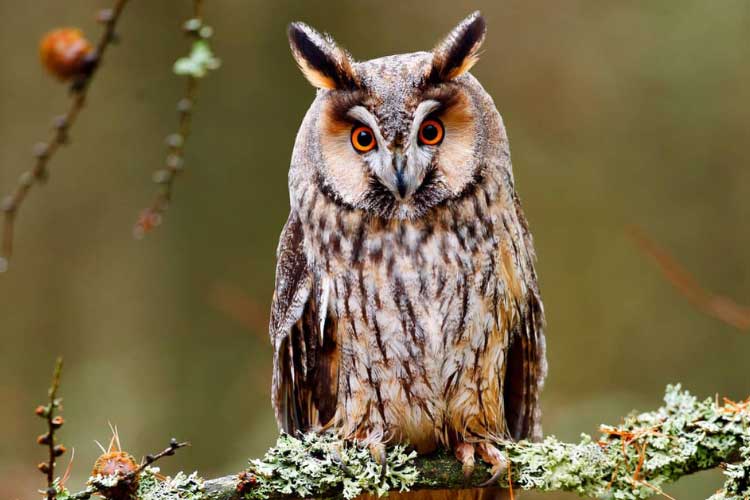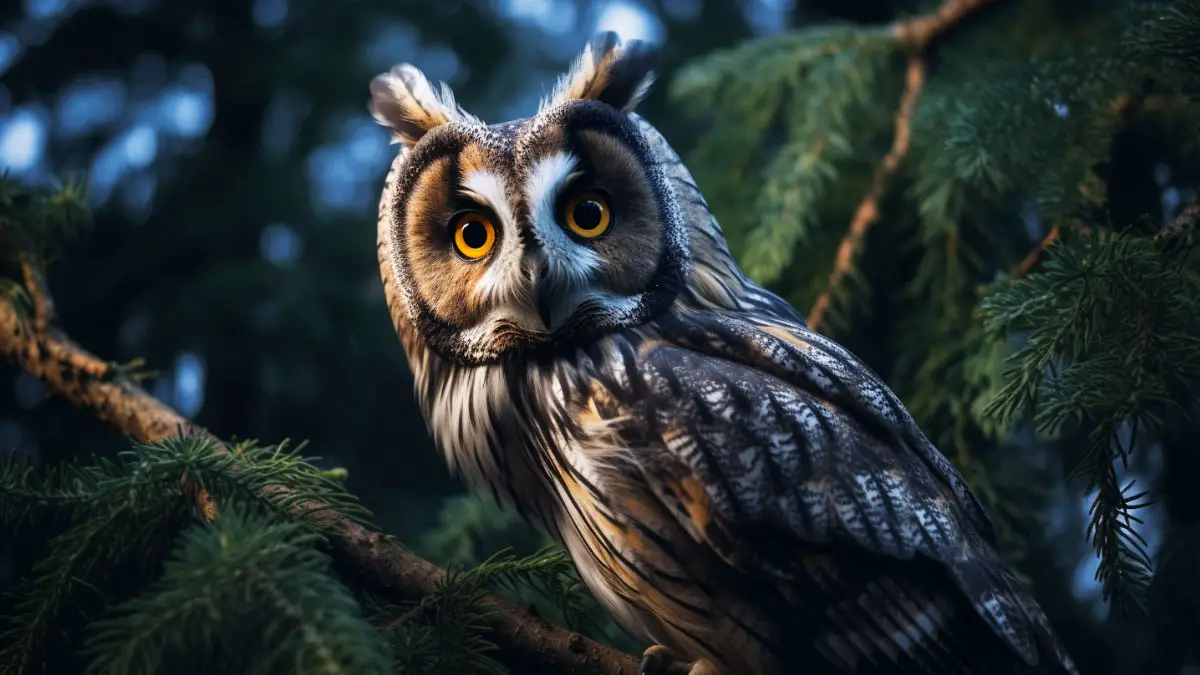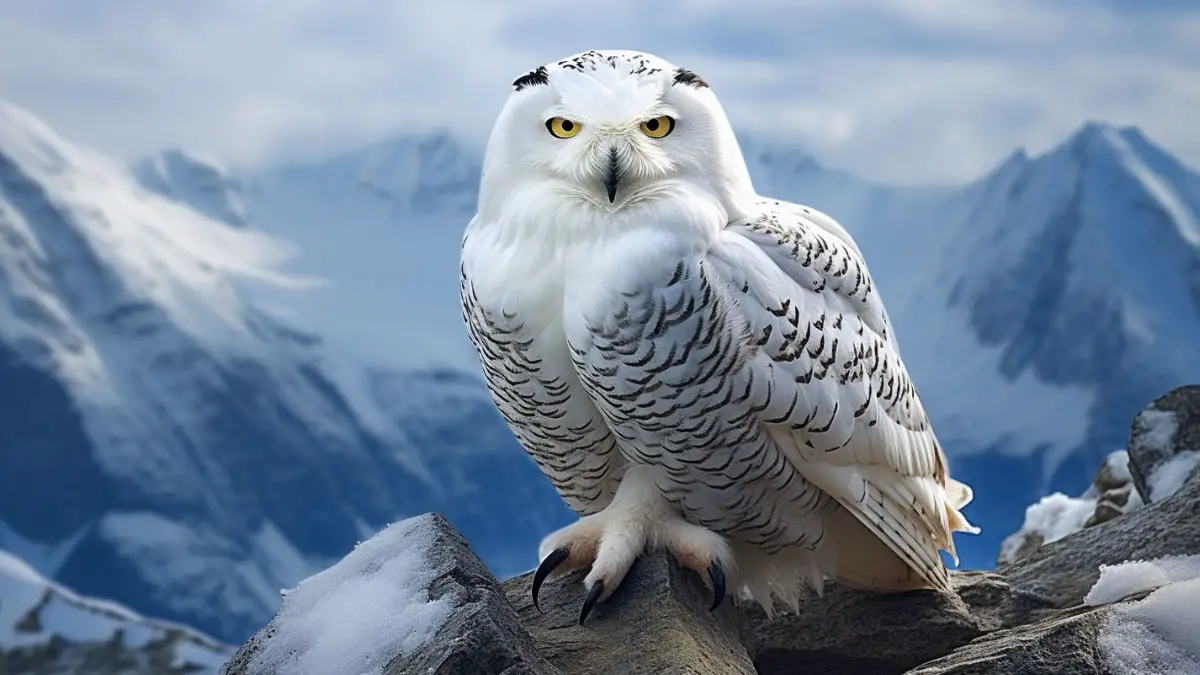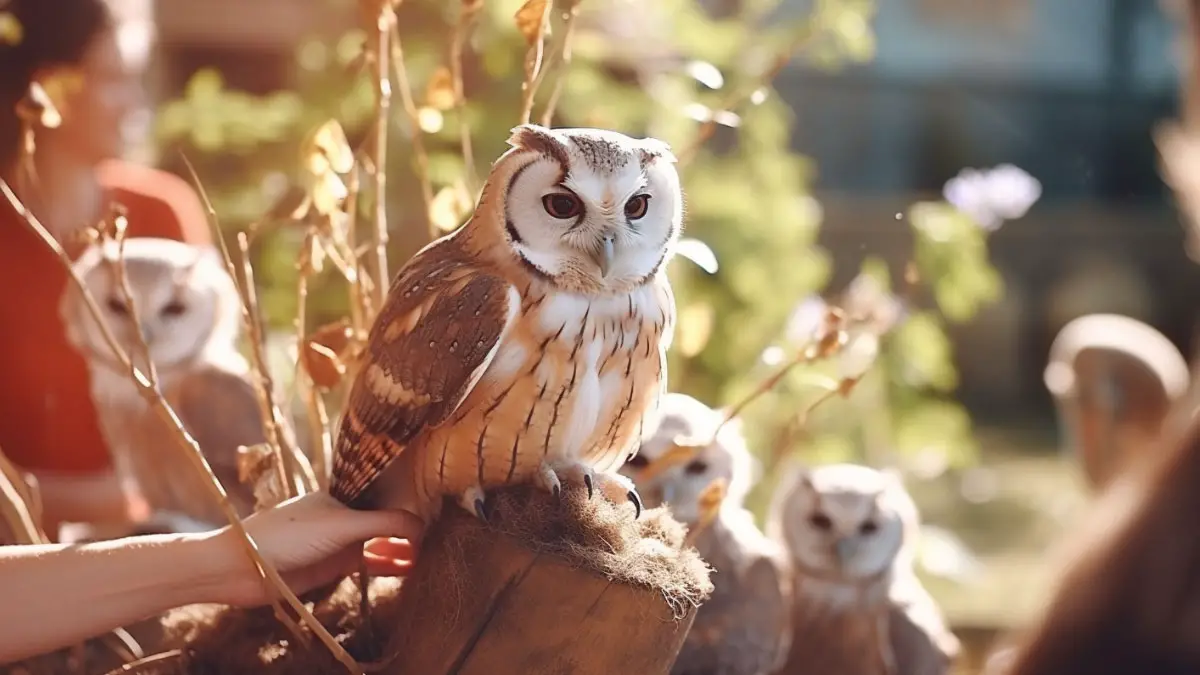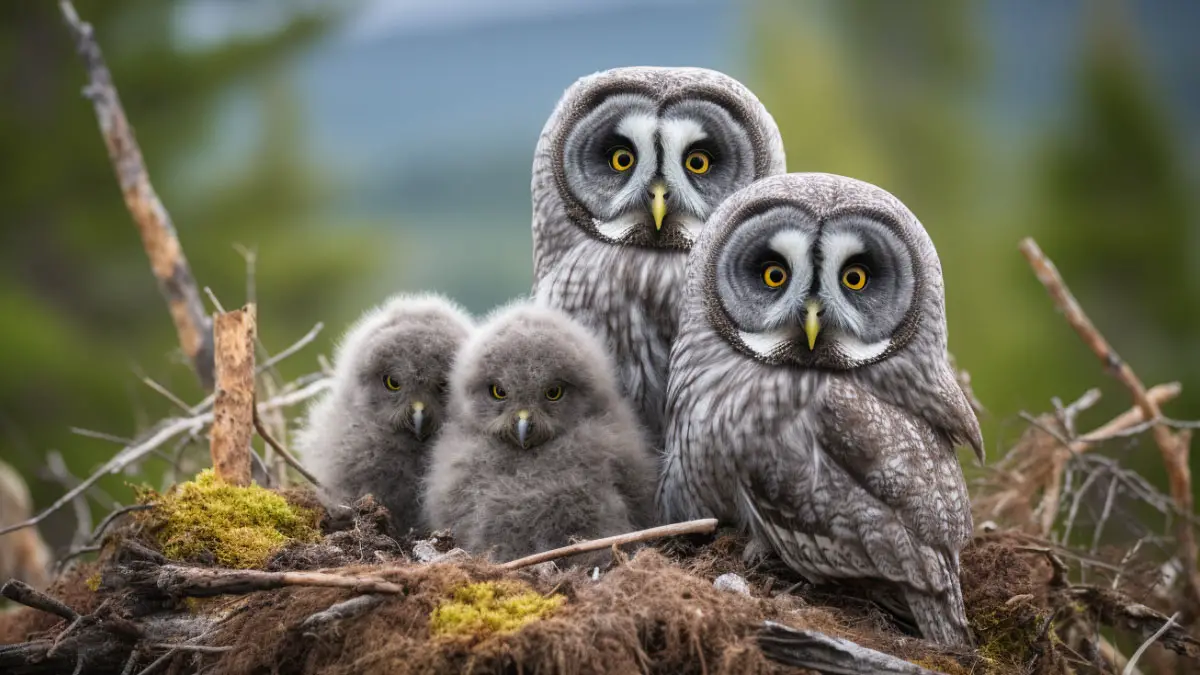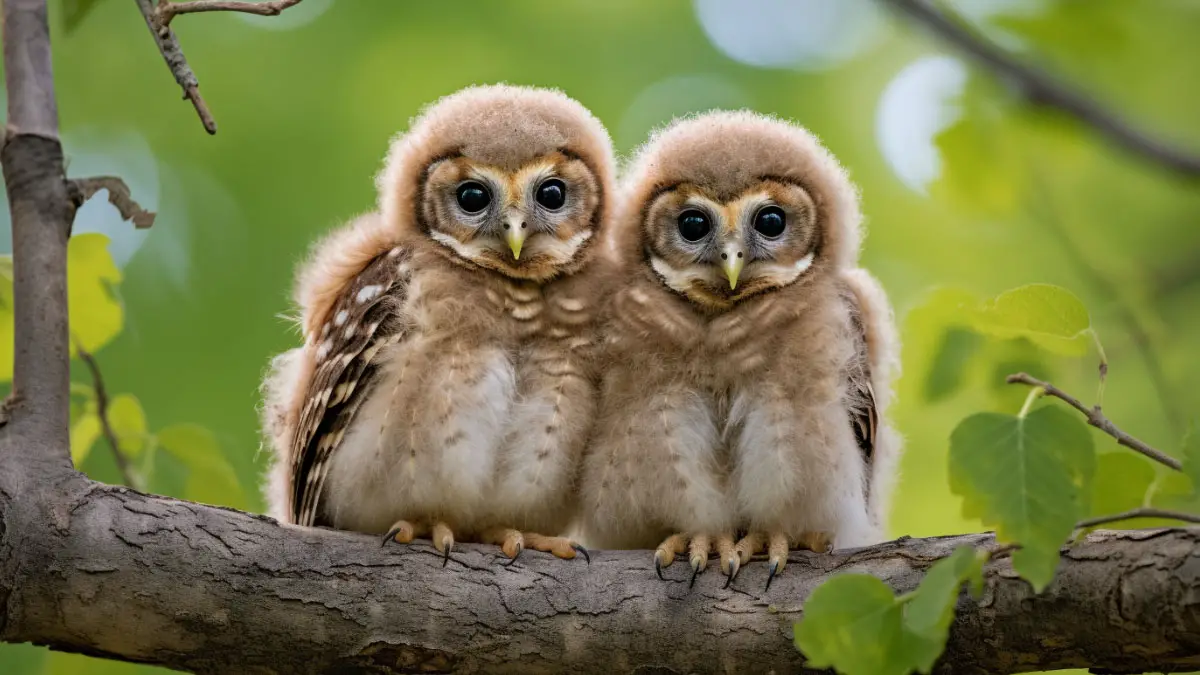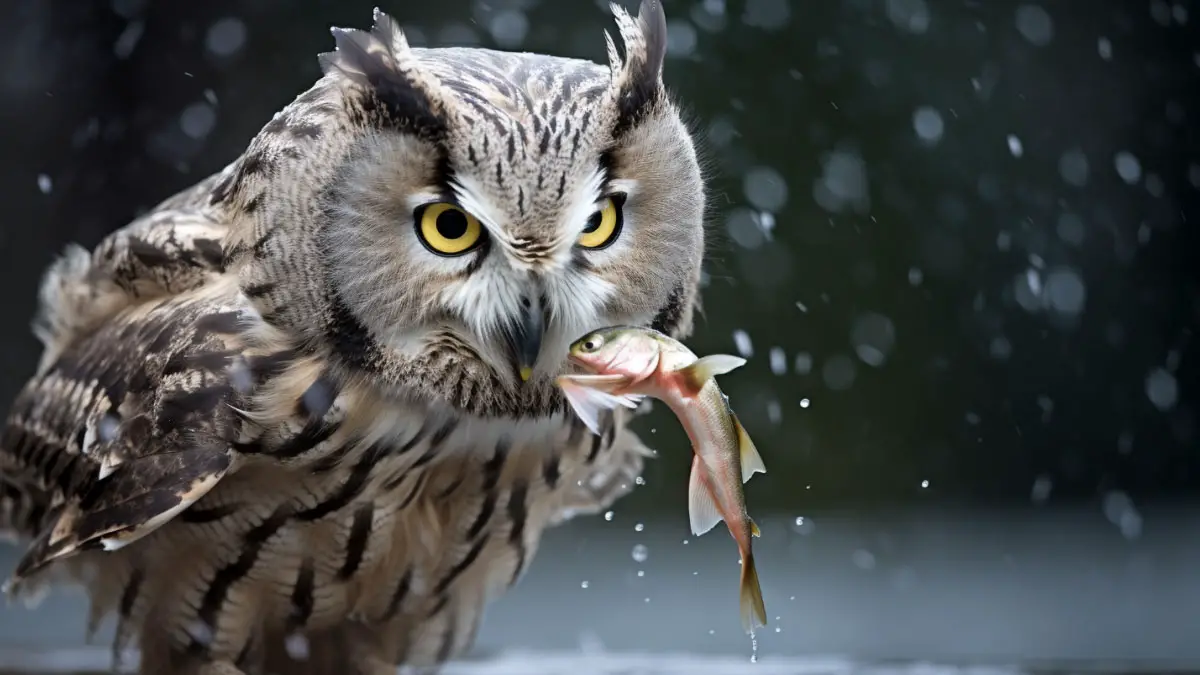Owls are famous for their distinctive sleeping habit of sleeping during the day and hunting at nighttime. Their activeness at night is termed as nocturnal activity.
But, Are All Owls Nocturnal? Is There An Owl That Is Not Nocturnal? No, all owls are not nocturnal. Over 250 species of owls are nocturnal, including the Great Horned Owl, Barn Owl, and Barred Owl. And only two species are diurnal that are found in America. And some other owls are nocturnal and diurnal based on their food supply.
In this article, we will discuss nocturnal, diurnal, and crepuscular owls and their hunting nature. Additionally, we will discuss the reason behind it. Staying with the article will make you an expert in detecting various types of owls.
Sleeping Patterns of Owls
Like humans, owls also have sleeping patterns or cycles. On average, they sleep more than humans. Usually, they sleep for 10-12 hours per day. Althougreat horned owl nocth they sleep 10 to 12 hours per day, the rest of the day they spend hunting.
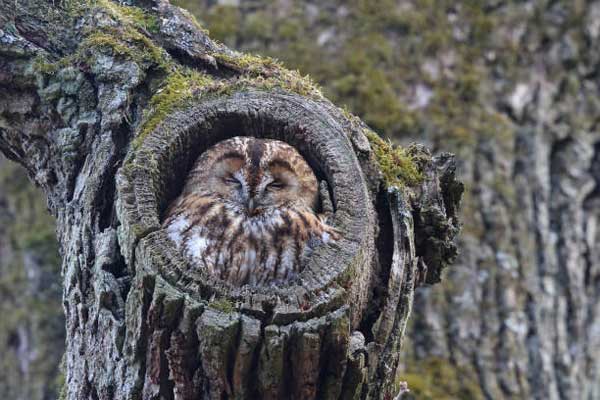
- Typically, most owls are nocturnal. Nocturnal means those who sleep during the day and are active the whole night. Usually, they sleep 10 to 12 hours, or sometimes they sleep the entire day.
- Besides, some owls sleep at night and are active the whole day. They are diurnal owls. Comparatively, a few owls are diurnal and crepuscular. Some owls have a cathemeral sleeping cycle because they are active at night and in the daytime.
- You can see other types of owls who are picky eaters. They have no specific sleeping patterns. They can manage their sleeping pattern to their wish. Food sources are the main factor in the alignment of the sleeping cycle.
Are All Owls Nocturnal? Why are Owls Nocturnal?
The availability of hunting is the primary factor becoming the owls are nocturnal. They usually hunt those mammals that are active at night. Besides they can also hunt mice for their source of food. Some surveys provided that around 69% of owls are nocturnal.
However, they can hunt them during the day too. The problem is they have to compete with other animals and ferocious birds in hunting and collecting food. Birds like eagles and hawks hunt during the day. These birds can hunt some small owls as well.
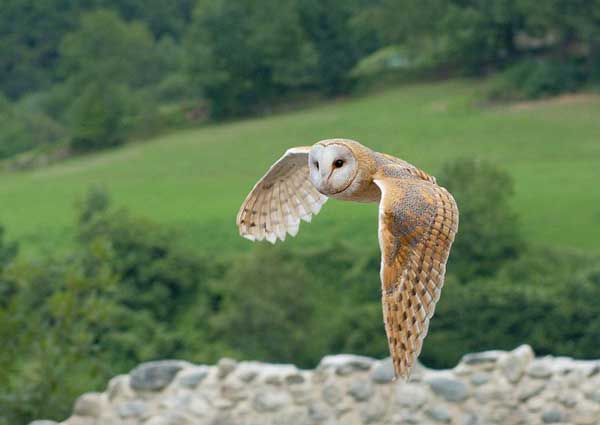
To avoid becoming prey and competing against other birds, the owls become nocturnal and hunt at night. Besides, they have the advantage of bigger eyes. The pupils of the eyes are so wide that they help the owls in the night while hunting by collecting more light. The example of some nocturnal owls are,
1. The Great Horned Owl
The Great Horned Owl is the most famous in America. You can find and spot this owl anywhere in America because of its large size. Usually, it likes to eat animals like mice, rabbits, and voles.
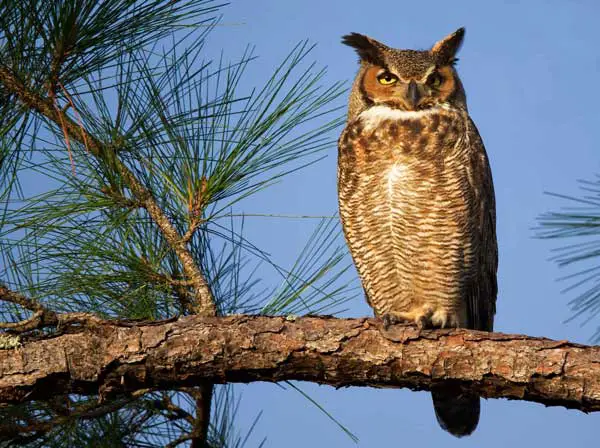
Accordingly, the Great Horned Owl is more significant than any other normal bird. Various studies detected that the great horned owl has over 500 species of prey. Normally, it hunts at night as it is a nocturnal owl.
2. Barn Owl
In this world, Barn owls are the most distributed and you can see them in every region. But you can’t find any of them in the polar region and pacific islands. They can hear anything very accurately. For this reason, their hunting is a little bit easier than others.
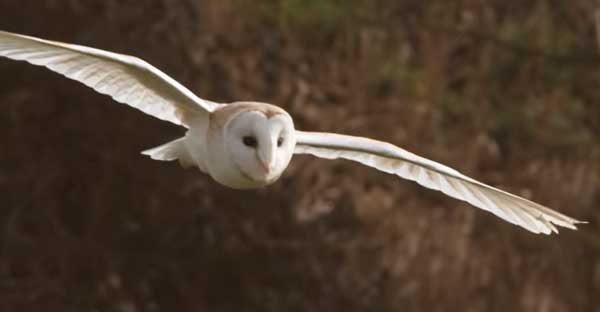
Most of the time they like to hunt at night. But in some regions, such as the Britains, they hunt at dawn and dusk. Normally, they hunt prey on the ground and they have specialized ground hunting techniques. Small mammals are their favorite food, which they locate by their ears.
Are Barred Owls Nocturnal?
Primarily, Barred Owls are nocturnal. But sometimes you may find them moving outside during the day. Usually, they hunt their prey at night but depending on the food source, they hunt in the daytime. It is a rare case.
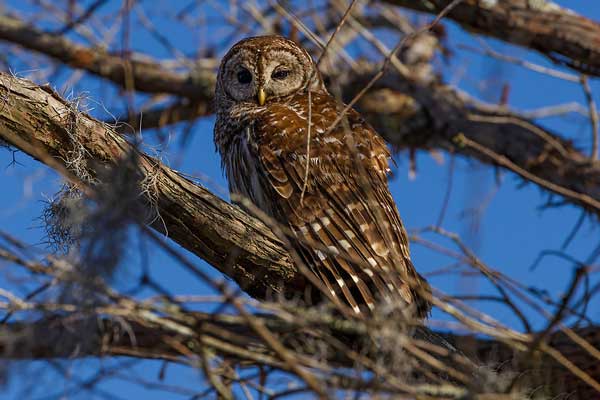
However, Barred owls are generally most famous on the northwestern side of the United States. They have big black eyes and streaked chests. Usually, you can find them in forest areas.
Are Burrowing Owls Nocturnal?
Unlike most owls, they usually hunt and find their food source during the day. They are not nocturnal. They like to eat insects and small mammals. Burrowing owls sleep the whole night like humans.
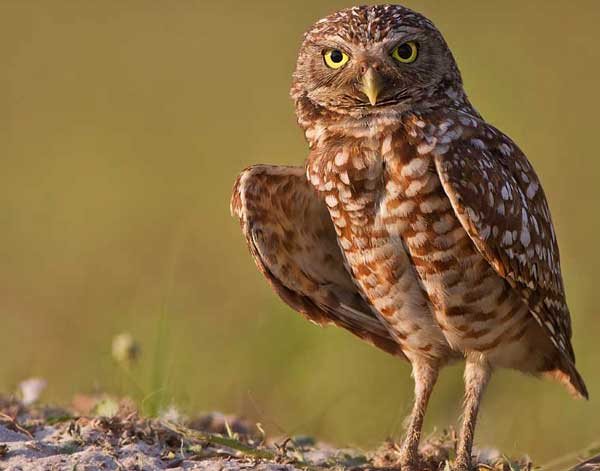
However, burrowing owls live underground. Burrowing owls have 22 subspecies, and all of them are diurnal. They usually don’t go outside at night because they are the prey of foxes and badgers.
Some Diurnal Owls
Although most owls are nocturnal, there are two species of diurnal owls. One of them is the Northern Hawk Owl and the other one is the Northern Pygmy Owl. They usually contain yellow eyes. Below we will discuss both species.
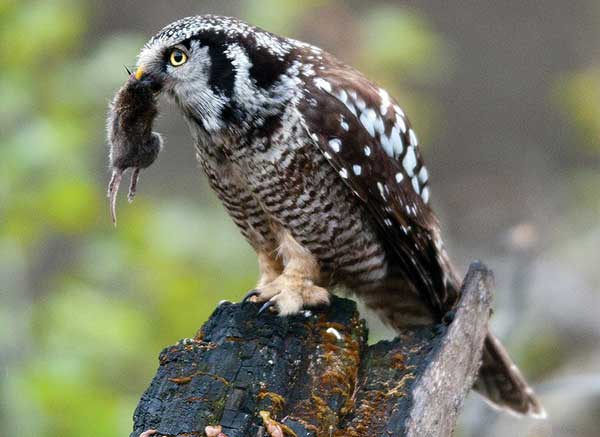
1. Northern Hawk Owls
The Northern Hawk Owls are one of the most skilled hunting birds. Usually, they follow hunting techniques like Falcons. Normally they are mid-size owls and you can find them mostly on the north side of America and Asia.
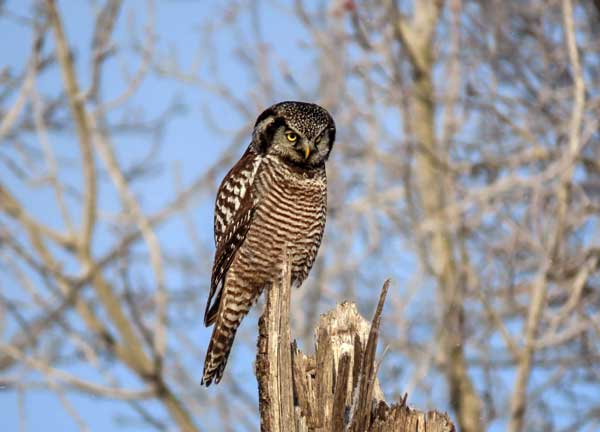
The Northern Hawk Owls are neither crepuscular nor nocturnal. They are active for the whole day and hunt their prey by competing with other birds. That’s why they are called diurnal owls. In winter, They hunt animals even though the prey flees inside the frost.
2. Northern Pygmy Owls
The Northern Pygmy Owls are another species that are active during the day. Generally, you can find them in the West Coach of North America. They are very fast hunters and hunt prey like Hawk owls in mid-flight.
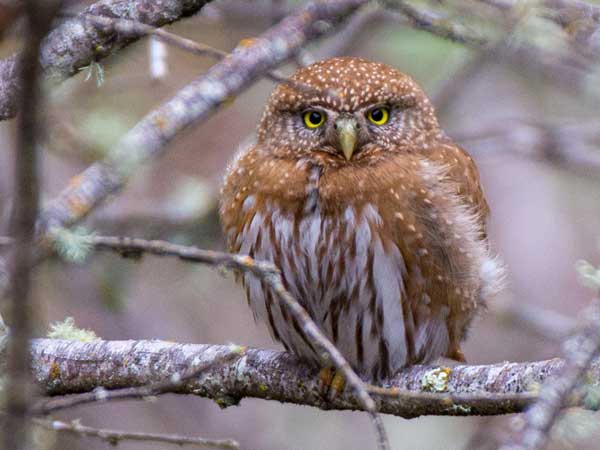
Pygmy owls love to live on the top of trees and sometimes, you will see them in open spaces. But it is so hard to spot them because of their small size and brownish color. Sometimes, in flight, they hunt insects as their food.
The Crepuscular Owls
The number of crepuscular owls is more than diurnal but less than nocturnal. Around 22% of owls are crepuscular. Crepuscular means those who are active at dawn or dusk. They love to hunt prey when the sun is half set. Snowy owls are the most common crepuscular owls.
Snowy Owls
These owls are also known as polar or white owls. They are neither nocturnal nor diurnal. They usually hunt and collect food at nightfall. In the summertime, these owls are mostly active in the daytime. But in severe weather, they refuse to hunt.
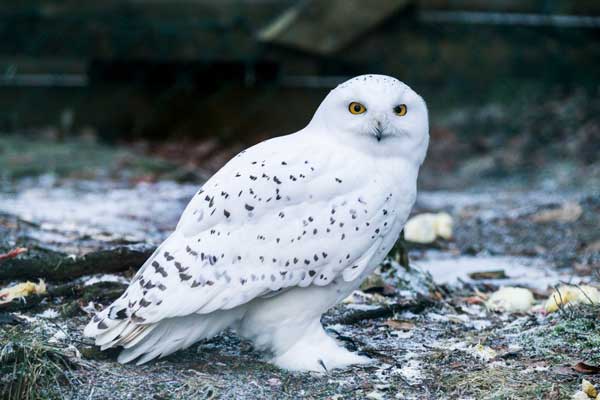
Similarly, these owls are famous in arctic regions. They hunt prey in flight and often take prey to the ground to eat. But sometimes they eat the whole prey by swallowing.
Frequently Asked Questions
Look at these frequently asked questions to have more idea about nocturnal owls and their habit.
Mainly, they wake up at night to hunt. Most owls are nocturnal and sleep during the day. They hunt at night because they want to avoid competition against other birds and animals.
No, the Great Horned Owl is nocturnal. It usually sleeps during the day and is active all night. But the owl is active in the late afternoon or early morning when there is a lack of food supply.
Conclusion
Most owls are nocturnal. Many years of surveys showed that Around 69% of owls are nocturnal. Depending on the species, some owls are diurnal and crepuscular as well.
Throughout this article, we answered and discussed the question, Are all owls nocturnal? Is there an owl that is not nocturnal? Now, you can identify the species of owls by their eye colors. Also, there are some species of owls out there undetected. Experts can’t tell whether they are nocturnal or not.
